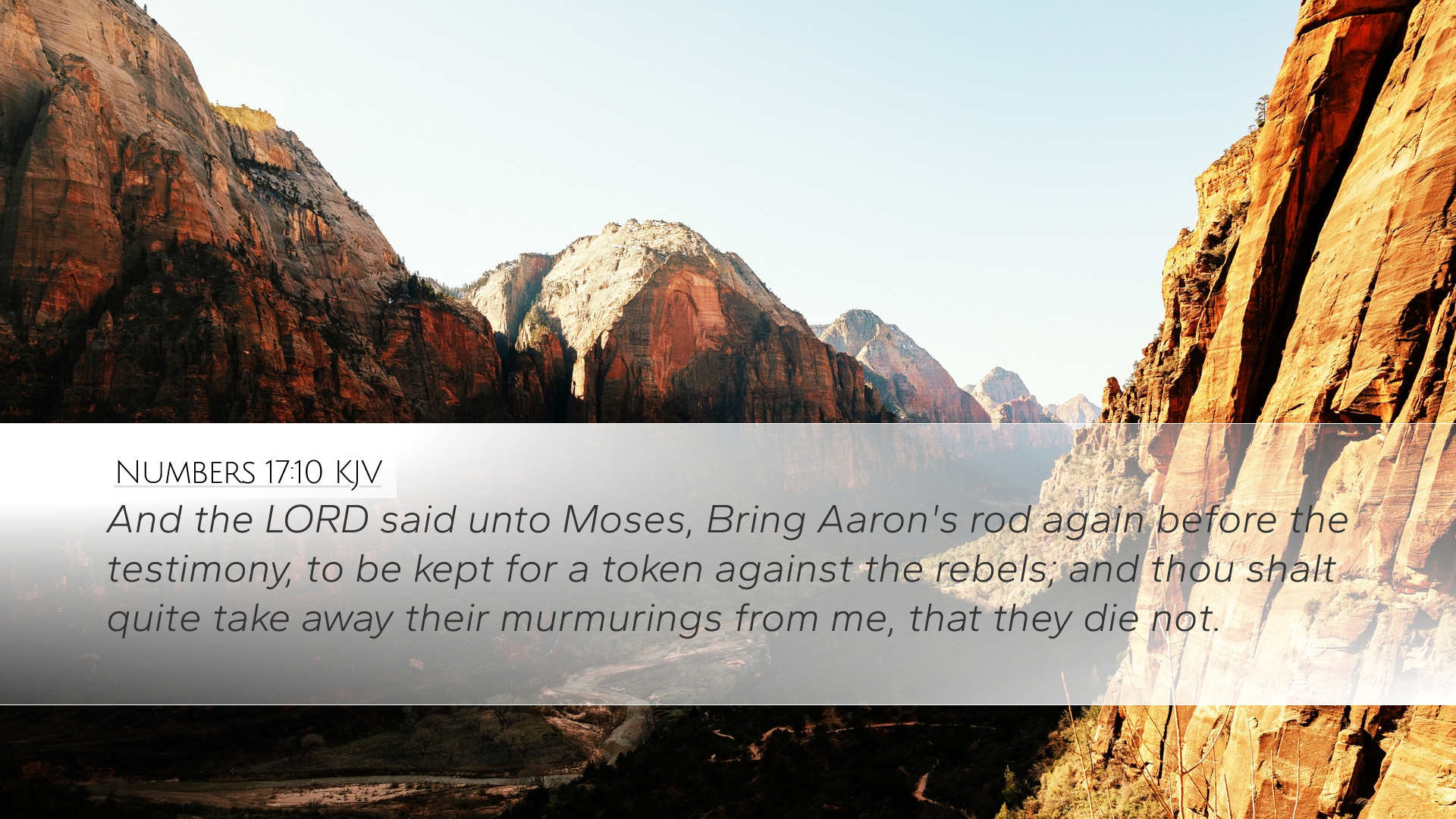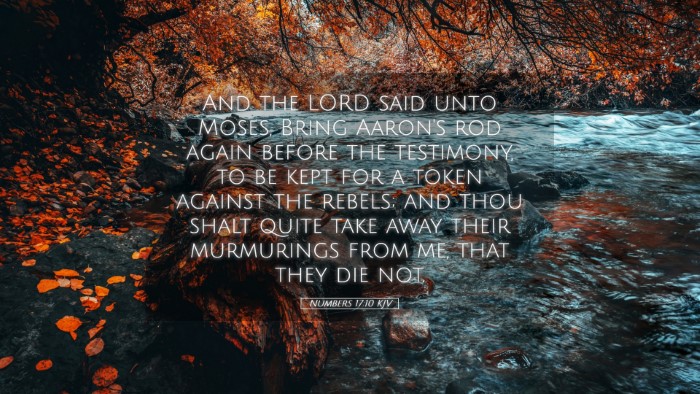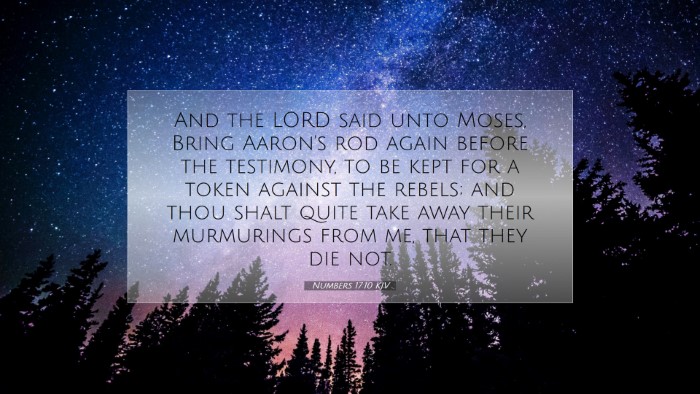Commentary on Numbers 17:10
Verse: "And the LORD said unto Moses, Bring Aaron's rod again before the testimony, to be kept for a token against the rebels; and thou shalt quite take away their murmurings from me, that they die not."
Introduction
This verse marks a significant moment in the narrative of Israel's wandering in the wilderness. As the rebellion against Moses and Aaron unfolds, God instructs Moses to preserve Aaron's rod as a testament against the rebellious spirit prevalent among the Israelites. The implications of this act and its theological underpinnings are profound and fertile for study.
Insights from Public Domain Commentaries
Matthew Henry's Commentary
Henry articulates the importance of divine authority as asserted in this verse. The rod of Aaron had already been involved in miraculous signs, including blossoming and yielding almonds, which God used to validate Aaron's priesthood. Henry emphasizes that this tangible token serves not only as proof of God’s choice but as a deterrent against murmuring and rebellion. The act of preserving the rod reminds the Israelites of their need for obedience and reverence towards the appointed leaders.
- Significance of the Rod: It symbolizes the divine appointment of the priestly line, showcasing God's choice amidst human strife.
- The Rebellious Nature: This preservation of the rod is a direct response to the discontent and rebellion of the people, highlighting the necessity for God’s authority to be recognized and respected.
Albert Barnes' Notes on the Bible
Barnes elaborates on the function of Aaron’s rod as a sign. The historical context illustrates the tensions present within the Israelite camp, with challenges to Moses' leadership arising. Barnes notes that the preservation of Aaron's rod illustrates God’s method of maintaining order among His people, utilizing physical manifestations of His sovereignty to remind them of their standing and responsibilities. The rod not only serves a practical purpose but is a visible sign of God’s miraculous works and His covenant with Israel.
- Token for Future Generations: The rod's preservation is intended to serve as a reminder for future Israelites, reinforcing the memory of God’s actions in appointing Aaron as high priest.
- Divine Intercession: This command to keep the rod indicates God's desire to intercede and preserve His chosen leaders despite the people's errant ways.
Adam Clarke's Commentary
Clarke provides an analytical view on the necessity of this act of preservation. He contemplates the rebellious nature of the Israelites, providing insights on human propensity to challenge authority, especially in moments of difficulty. Clarke points out that the rod's role transcends mere symbolism; it embodies the idea of divine providence actively working to reveal the consequences of rebellion and the assurance of God’s chosen path through Aaron. Clarke stresses that the rod remains a perpetual reminder of the seriousness of dissent against God’s established leadership.
- Consequences of Rebellion: Clarke emphasizes the grave consequences that follow dissent, citing this directive as a means to maintain order and divine order within the community.
- Manifestation of God’s Glory: The rod eventually standing as a symbol of God’s glory highlights the expectations placed on leaders and the people’s response to their authority.
Theological Implications
This verse resonates with several core theological themes essential for any serious study of Scripture:
- Authority and Leadership: The act of preserving the rod speaks volumes about the nature of leadership within the church and the need for respect towards divinely appointed leaders.
- Rebellion and Divine Judgment: The response to the people's murmuring indicates God’s displeasure with rebellion, reflecting a vital theme of accountability in the believer’s life.
- Divine Providence: The assurance that God will maintain His chosen priests encourages believers to trust in God's oversight and plan, especially in uncertain times.
Conclusion
Numbers 17:10 serves as a rich source for reflection on obedience, authority, and the consequences of rebellion against God’s appointed leaders. The preservation of Aaron’s rod is a pivotal point in the Israelite narrative that underscores God's sovereignty and the importance of recognizing His authority in leadership roles. For pastors, students, and scholars, this verse not only invites examination of historical context but also implores a contemporary understanding of leadership, obedience, and divine calling within the faith community.


